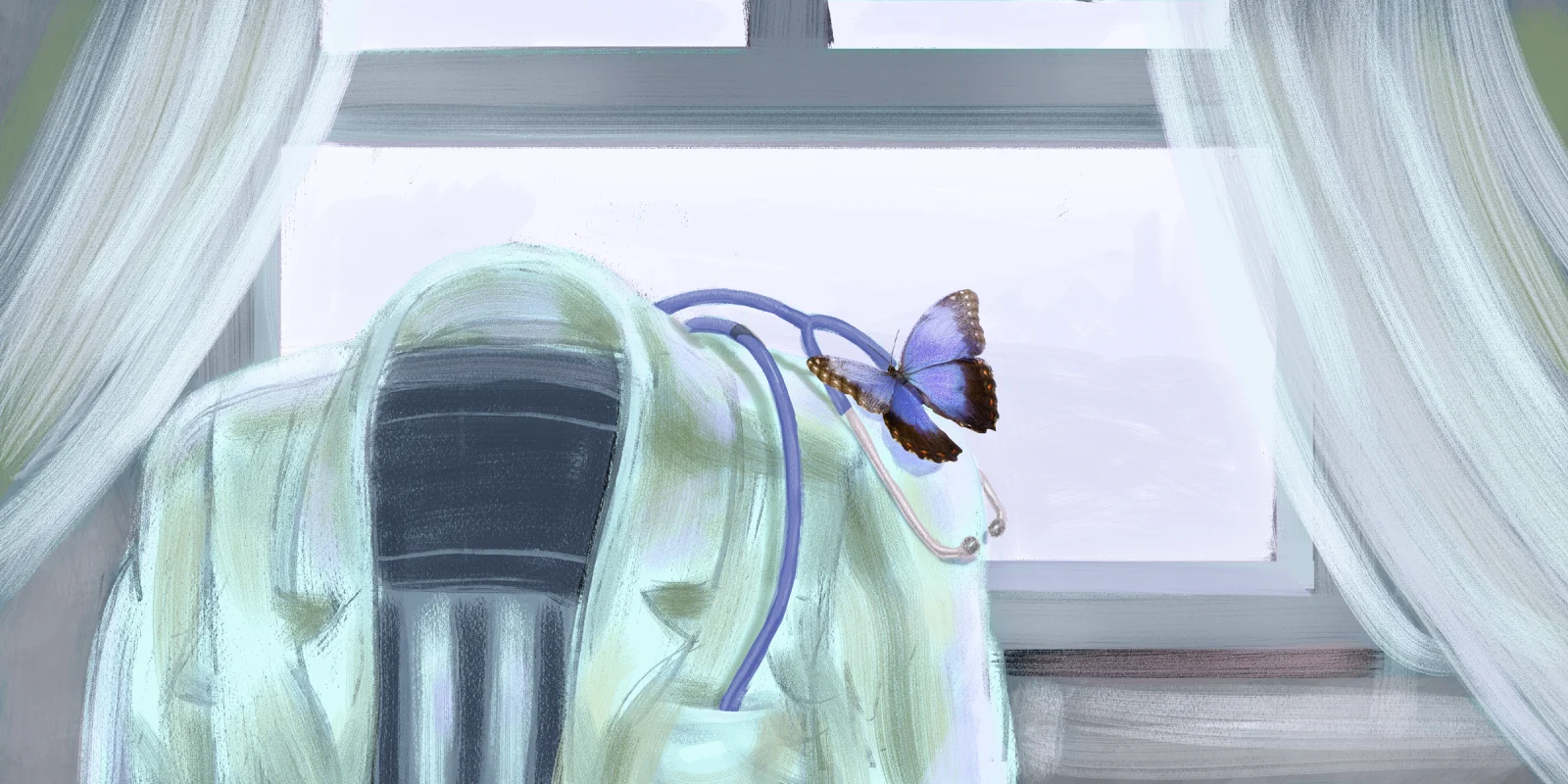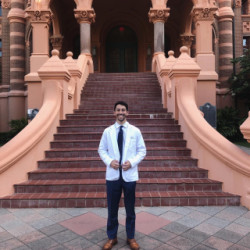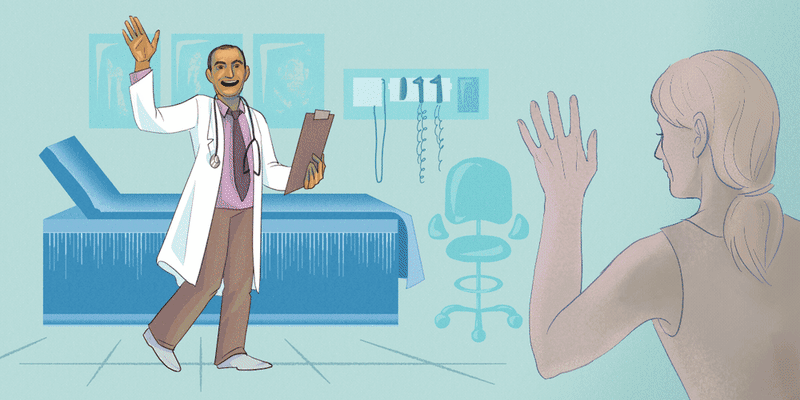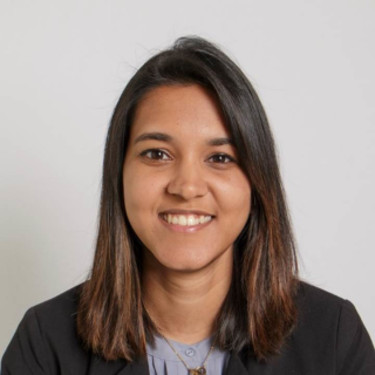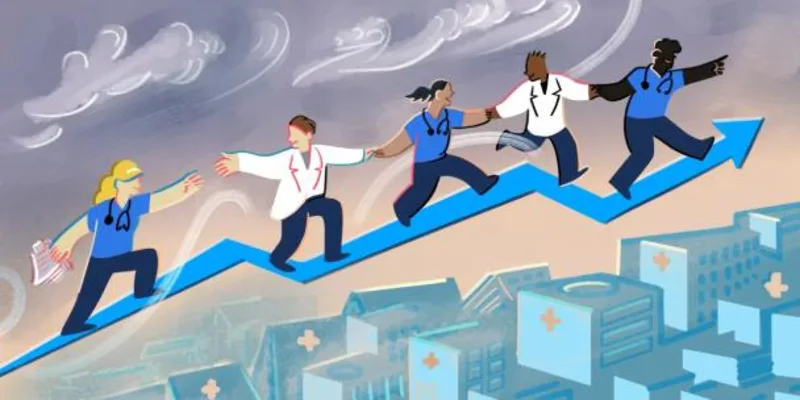According to Jean Piaget’s theory of the stages of cognitive development, a child’s understanding develops over time as they acquire knowledge. From the ages of approximately 7 to 11 years, we navigate the “concrete operational” stage of logical thought. One hallmark of this phase is the ability to appreciate the permanence of death.
I can recall a specific instance from that time in my own life when I ran down the hallway to my parents’ bedroom after having a nightmare about death — the thought of timeless eternity after death terrified me. As I matured through my teenage years, there were still occasions where I would find myself spiraling into distress at the mere thought of death. Now age 26, I continue to struggle with this concept in new ways. Having reached the “formal operational” stage, I can postulate about the meaning of life, my higher purpose, etc., but I still have a fundamental curiosity about what comes next.
During my recent rotation in hematology and oncology, I had a patient who declined unexpectedly and passed away within 24 hours of admission. The pathology faculty invited me to attend this individual’s autopsy, remarking that “sometimes a tragic event is a good learning opportunity.” The whole thing seemed a bit morbid, but I trusted that I would be able to gain some closure and provide insight regarding the clinical course and our differential diagnosis. When I entered the morgue, I could sense that I had arrived at the intersection of medicine and ontology. The dissection appeared cold and calculated, yet there was a ritual reverence and regard for human life. We spoke softly and respectfully, almost as if attending a funeral.
Seeing the body of a person so soon after death was powerful — it reminded me of my own mortality and forced me to confront a question that transcends time and space: What happens after we die? It is easy to say that the heart stops beating, the lungs stop breathing, and the brain ceases to function, but looking into my patient’s eyes, it felt like there was something missing beyond these simple vital functions. As the residents performed their postmortem examination and pointed out findings such as petechiae on numerous organs, massive splenomegaly, liver hemorrhage, and diffuse lung damage, I could not shake the feeling that the dissected body in front of me was different than the patient I had seen. Whether you call it the soul, the psyche, or the spirit, I sensed that the essence of human life was somehow absent.
While the idea that there is some greater life force within us cannot be verified medically or scientifically, I do not believe that precludes us from engaging in difficult conversations about the end of the human experience. Even for the complete atheist, I think there is value in addressing the notion that our bodies carry something more than just the vital organs. Sure, it is possible that the idea of the soul is merely a construct meant to placate us as we expire, but who’s to say that we cannot find meaning in the notion anyway?
As physicians, we are often tasked with counseling patients on complex issues such as end-of-life care. Though we do our best to empathize with these challenges, there are situations where we do not have all the answers. When dealing with matters of life and death, I have found that medical professionals walk a fine line between pragmatism and personal ideology; we must set aside our own thoughts, feelings, and uncertainties in the interest of providing comfort, but also maintain our humanity.
While language such as “health care hero” is used to describe hospital employees, the truth is that we are also vulnerable and struggle with some of the same issues as patients in our private lives. When it comes to best helping our patients at the end of their lives, I believe that the answer is not to simply put aside our scientific minds in favor of thinking more spiritually and existentially. Rather, I suggest that we find balance by embracing our insecurities and finding common ground with patients when it comes to the big questions that burden us all.
What has helped you engage in difficult conversations about the end of life as a clinician? Share your approaches in the comment section.
Jacob Herstein is a third-year medical student in Galveston, TX. He enjoys basketball, reading, and taking his dog to the beach. He tweets @JacobHMed. Jacob is a 2022-2023 Doximity Op-Med Fellow.
Illustration by Jennifer Bogartz
